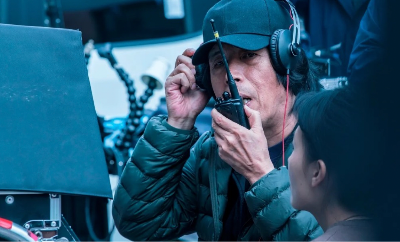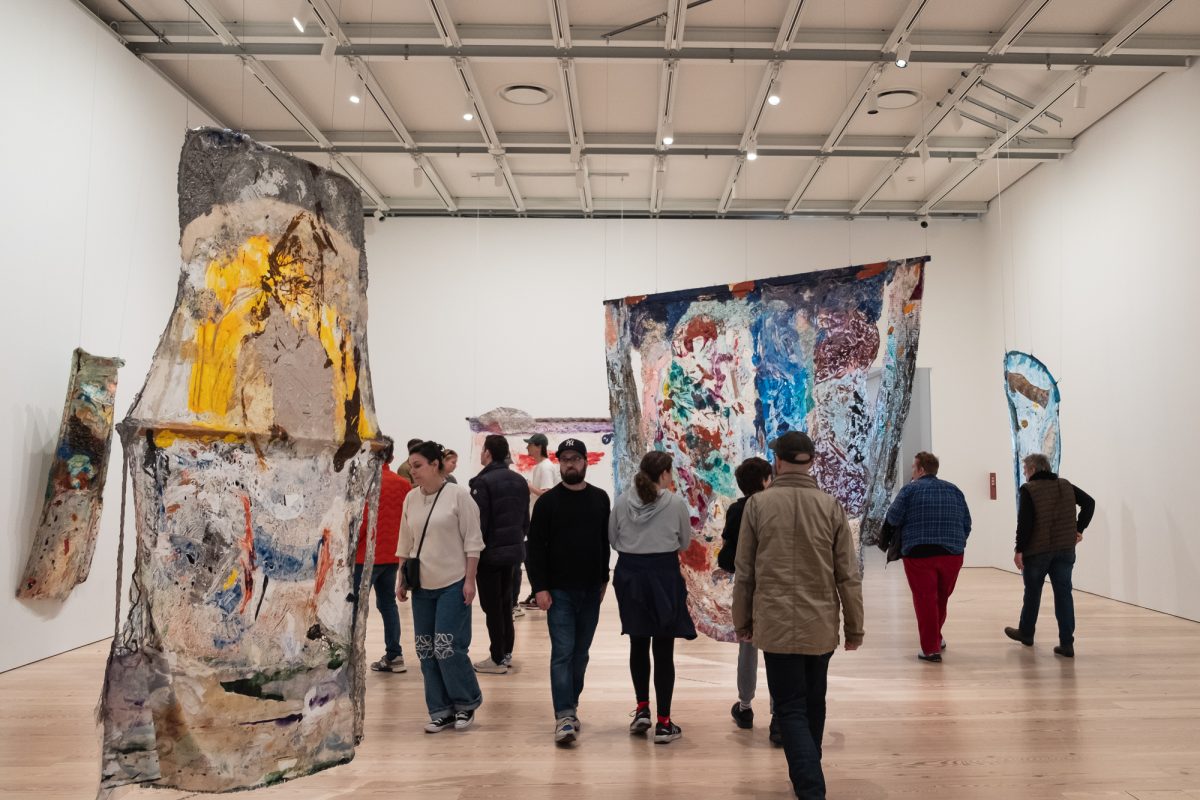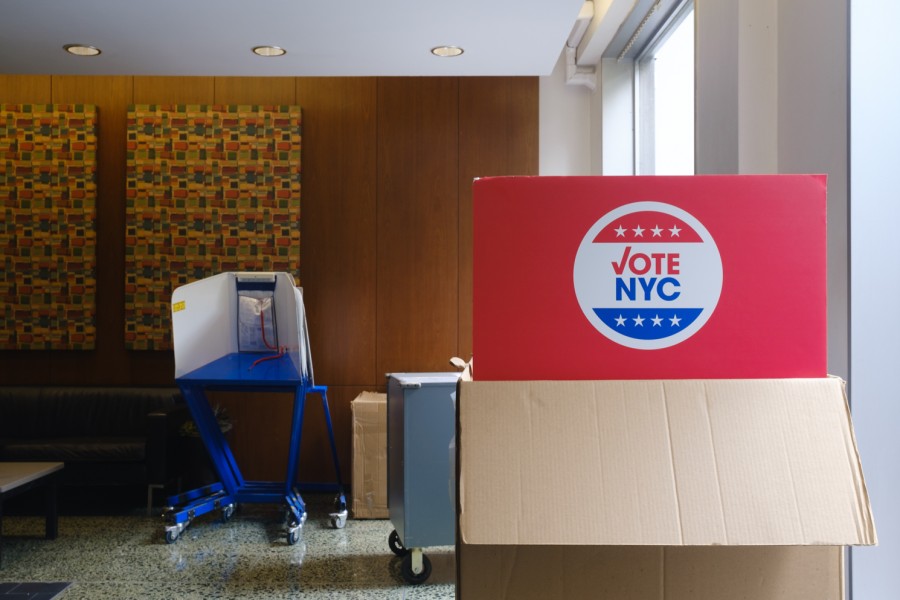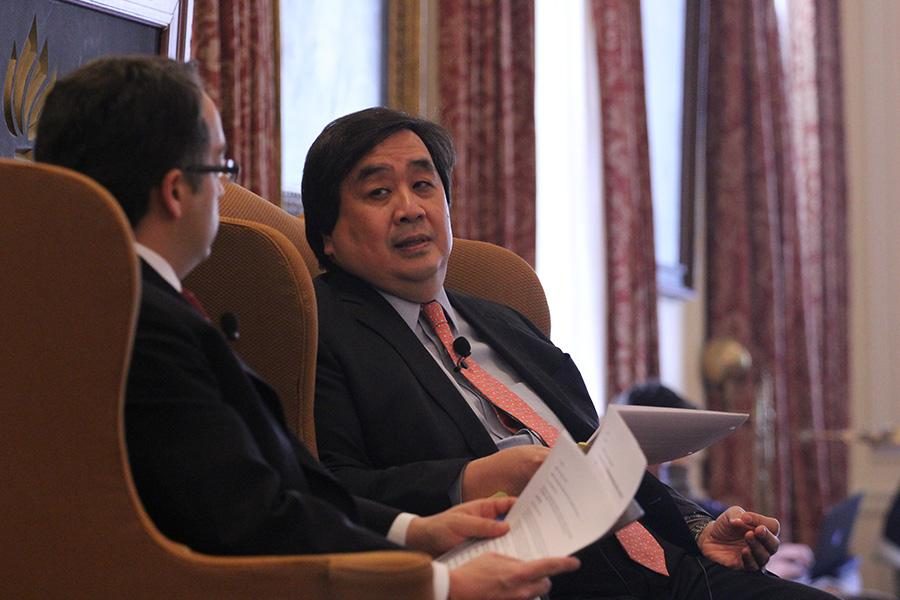Students protest law school response
Harold Koh, right, spoke with Ryan Goodman on a number of topics including the Forever War and his role in the Obama Administration.
April 7, 2015
The Coalition on Law & Representation at NYU has recently revealed that students who have expressed support for the Statement of No Confidence in former legal adviser of the State Department Harold Hongju Koh may have been subject to intimidation by faculty, both within and outside NYU.
The Statement of No Confidence was organized by over 190 NYU Law students, faculty and alumni, as well as students of other NYU schools and various members of the community and opposes Koh’s presence at NYU Law.
The statement criticizes his role as a professor of international human rights law and distinguished scholar-in-residence for the current academic year. Also noted was Koh’s significant role as the legal architect behind the Obama administration’s drone program, which has been increasingly scrutinized throughout its six-year operation for its lack of transparency. The program has drawn further criticism for its purported culpability for thousands of civilian casualties in Pakistan, Yemen and Somalia.
Students advocating against Koh claim they have been receiving private emails from professors, advisers and program managers soliciting withdrawal of their support.
On April 3, the CoLR released a letter criticizing the alleged intimidation tactics employed against the students, as well as reiterating the value of their engagement and opinion.
“We are troubled by the faculty’s tactics because they worked,” the letter reads. “We spoke with students who withdrew or withheld their support not because they disagreed with the statement, but because they were concerned with reprisal. At least one prominent faculty member has repeatedly denounced the petition to his class, leveraging his authority as a leader and a professor to silence the issue in exactly the environment in which it should be freely discussed.”
Student signatories on the Statement of No Confidence have been removed from the public version of the document and will be added once the petition is delivered, after the grading period.
Koh himself said the private correspondence with WSN was the first time CoLR’s letter had been made known to him.
“As far as I know, faculty originally reached out to students to tell them they had gotten their facts wrong,” Koh said. “Apparently, they viewed that as intimidation.”
NYU Law public affairs director Michael Orey said the university guarantees freedom of expression for all its members, adding that requesting students to take into account a different approach is not a threatening tool.
“We fully respect and support the rights of members of our community to express their views,” Orey said. “Some members of that community — including NYU Law faculty and administrators — have voiced individual support for Harold Koh in the wake of a student-led statement of no confidence in him. Asking others to consider different perspectives should not be regarded
as intimidation.”
NYU Law Dean Trevor Morrison also reached out to the law school community, addressing the allegations made by students against faculty. He accepted that the accusations were made in good faith, but ultimately said they were unfounded and the product of miscommunication and misunderstanding.
“I am confident that no member of our faculty intended the expression of his or her opinions to be construed as intimidation,” Morrison said. “Certainly I did not. To be clear, no student faces any penalty for supporting the statement.”
Morrison, on behalf of the administration, invited students to provide information about alleged intimidation.
“Academic freedom requires space to express contrary views,” Morrison said. “Just as all members of our community, students and faculty alike, enjoy a broad freedom to voice opinions on matters of public concern, so too do they enjoy a right — truly, an obligation — to contest, challenge and dispute the views with which they disagree.”
A version of this article appeared in the Tuesday, April 7 print edition. Email Mark Sologuren at [email protected].












































































































































